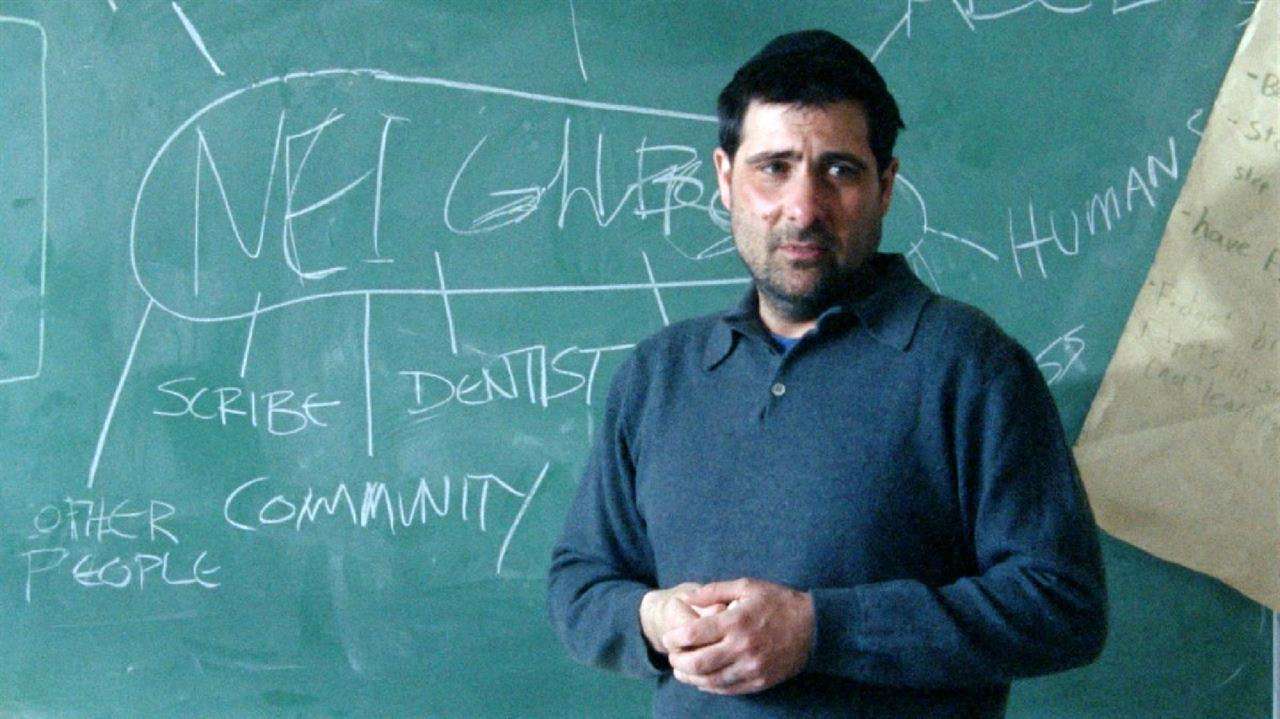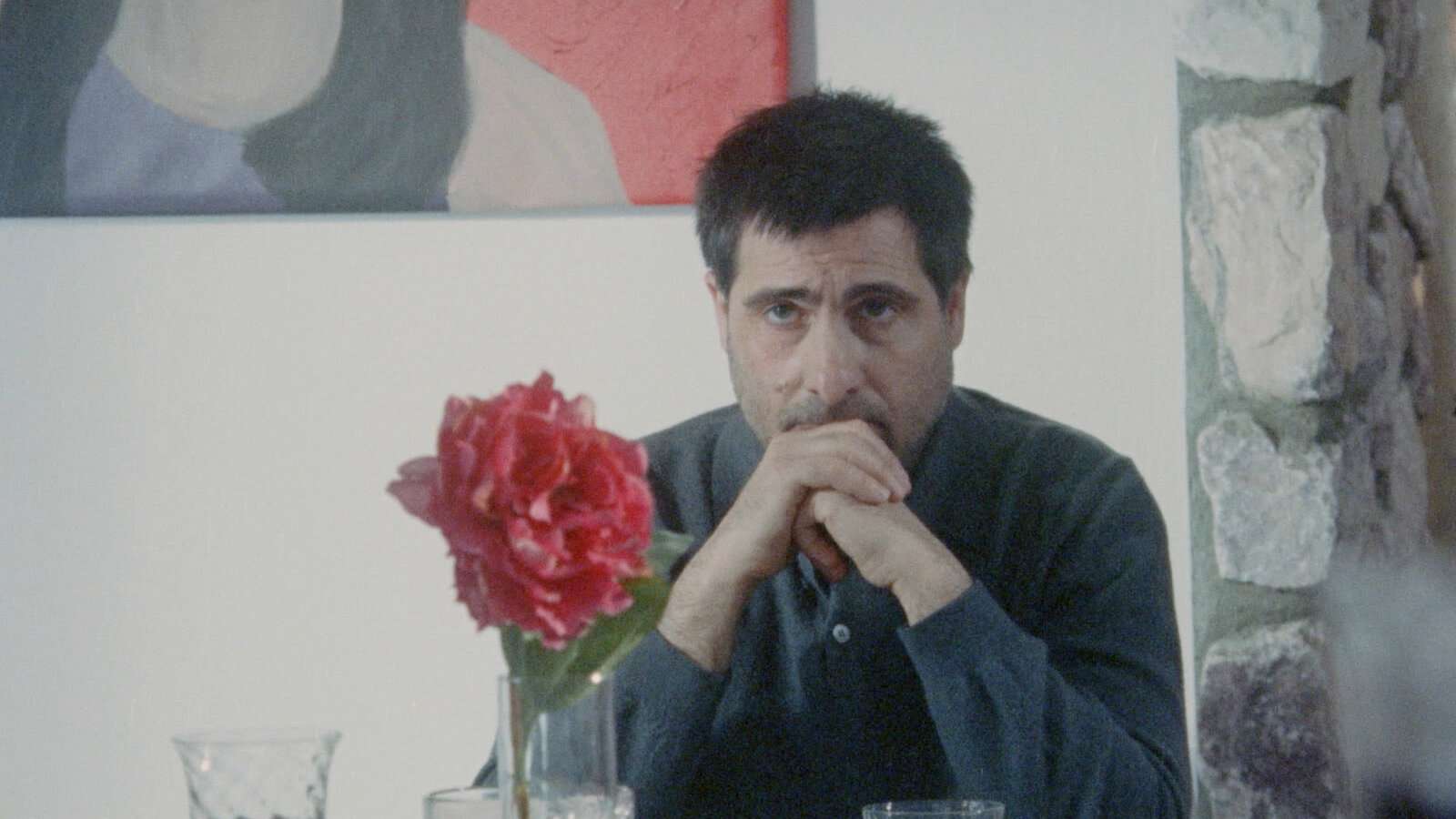“Between the Temples” is in many ways a coming-of-age story, but it is also a meditation on faith, an examination of the aging process, and reconnecting with the past. How are all these things possible at once? As “Between the Temples” so beautifully explores, identity is fungible, and there is never any definitive moment in which someone definitively passes from one stage of life to another.
The possibility of finding either maturity or regression later in life is what makes it so exciting, but it can also be a challenge for those who don’t feel their experiences are worth consideration. There are a lot of touchy subjects that get a spotlight in “Between the Temples,” but at its best, Nathan Silver’s gut-busting dramedy explores all the specific chaos that comes with being human.
At the center of “Between the Temples” is another charming man-child performance by Jason Schwartzman as Ben Gottlieb, a cantor who is losing his ability to sing. This is obviously an impediment to his chosen profession, but Ben’s struggles are understood by his community given that he is mourning the death of his wife, Ruth.
Burdened by his mounting insecurities, Ben moves back in with his mothers, Judith (Dolly de Leon) and Meira (Caroline Aaron), who would like nothing more for him to settle down with a nice young Jewish woman and start a family. However, Ben’s attentions are placed elsewhere after he shares a surprise encounter with his former elementary school teacher, Carla Kessler (Carol Kane).

Carla had been denied an opportunity to have a bat mitzvah during her adolescence as the result of her parents’ affiliation with the Communist party, but she has long since dreamed about committing herself more fully to the faith. Ben sees an opportunity to center his attention by giving lessons to Carla, who he has always reflected fondly on, as he certainly began immersing himself in music as a result of her teaching. However, Carla and Ben’s relationship begins to develop in unexpected ways, which results in deep skepticism on the part of both families.
Schwartzman has occupied a unique place in independent cinema as a result of his recurring collaborations with Wes Anderson, who has frequently cast him as a distraught, slightly pretentious type. While there is certainly some idiosyncrasy layered into his performance in “Between the Temples,” Schwartzman captures the feelings of confusion that come with feeling like one’s life has been completely derailed. Ben had been taught a clear progression of events from the faith, in which he would mature from a young man to an adult, become a father, and take on a more prominent role in the community. The loss of his wife doesn’t just halt his development; it forces him to regress into someone who is now looking for a different purpose.
Schwartzman does a great job at showing the joy that Ben takes in instructing Carla, as the superiority complex that comes with giving guidance to a former teacher is too prominent to ignore. However, the deeper motivation behind Ben’s attraction to Carla is that he finally feels like he is needed once more; in the time since his wife passed, Ben has struggled with being treated as the victim, and his reduced role in the faith has made it even more difficult from him to be viewed as a figure of authority.
It’s through allowing Carla to have something she never experienced that Ben finally feels as if he is doing good once more, which ironically allows him to come to grips with the terrible tragedy that befell his family. Schwartman’s idiosyncrasies, while humorous at times, add a level of specificity to the character, but do not necessarily define him.

Kane is of course an icon of the industry whose credits include some of the best films of all time, such as “Dog Day Afternoon,” “Annie Hall,” and “The Princess Bride” just to name a few. It’s because of her status that the part of an older character seeking reclamation feels so perfect; Kane is able to take on the role of a woman in the midst of a faith-based crisis, which may have been the type of role that she would have been offered more commonly within her youth. There’s an inherent energy that comes with seeing a character of Carla’s age reconnect with her youth in such a primal way, but Kane is also able to give sad hints at maturation that indicate that she is in no way naive.
Kane and Schwartzman are so delightful together that they can make the most of what can occasionally be underwritten passages; a scene of the two eating lunch and discussing the kosher diet is the type of highly specific experience that requires two great actors’ ability to play off each other. “Between the Temples” does begin to lose steam when it begins to create more barriers against them in its second half, making the more naturalistic conversations fewer and far between.
The insertion of Carla’s son, Nat (Matthew Shear), an atheist who sits for an awkward dinner with Ben, does feel like he was added to the story to provoke another exchange of ideas that the film had not necessarily earned. Similarly, a development involving the local Robert Smigel (Robert Smigel) and his daughter Gabby’s (Madeline Weinstein) romantic feelings toward Ben feels added too late of an instance to be developed thoroughly.
“Between the Temples” struggles to find an ending, as the film is more centered on questioning societal roles and blurring the line between social divisions than it is offering productive solutions. Given that it is a film about faith, there is a certain amount of ambiguity that should be expected, so it’s impressive that “Between the Temples” still manages to frequently be laugh-out-loud funny. While it’s perhaps a film that gives viewers a little too much to chew on by the time the credits begin crawling, the effervescent dynamic between Schwartman and Kane makes “Between the Temples” a more than delightful comedy of errors.



![Kadaisi Vivasayi [2022]: ‘SonyLIV’ Review – A Fascinating Ode to Farmers and Simple Living](https://79468c92.delivery.rocketcdn.me/wp-content/uploads/2022/03/kadaisi-vivasayi-642969-768x432.jpg)
![Clash [2016] – A Thrilling and Deeply Humane Chamber Piece](https://79468c92.delivery.rocketcdn.me/wp-content/uploads/2017/08/cover-2-768x399.jpg)
![Intrusion [2021] Review – A Stomach-churning Thriller That Critiques Male Ego](https://79468c92.delivery.rocketcdn.me/wp-content/uploads/2021/09/Intrusion-3-highonfilms-768x512.jpg)

![The Ascent [1977] Review – An Unheard Anti-War Masterpiece](https://79468c92.delivery.rocketcdn.me/wp-content/uploads/2020/06/The-Ascent-1977-768x576.jpeg)
